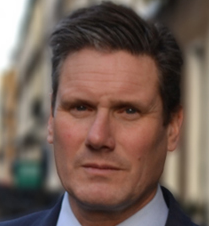The speech made by Keir Starmer, the Leader of the Opposition, in the House of Commons on 4 July 2022.
I thank the Prime Minister for the advance copy of his statement, and I welcome him back to these shores. They say that absence makes the heart grow fonder, so I wish him the best of luck in seeing if that works as a party management strategy.
It has been 131 days since Russia’s illegal invasion of Ukraine, 131 days of war at the heart of our continent, 131 days of Putin trying to make his neighbours cower and 131 days of brave Ukrainian resistance. I have always said that this House, and Britain’s allies, must put aside our differences in other areas and show unity in our opposition to Putin’s aggression. And we have done, driven by the inspiration provided by the people of Ukraine and the leadership and courage of President Zelensky.
As this conflict reaches its sixth month and drags on in eastern Ukraine, it is important that we do not think our job is done. Putin would like nothing better than for us to lose our focus, for the grip of sanctions to weaken, for military aid to Ukraine to dry up or for cracks to appear in the unity of his opponents. So I welcome the progress made at the NATO summit last week, and congratulate our good friends in Finland and Sweden on their formal invitation to join the NATO alliance, and of course Ukraine on securing its candidate status to join the European Union. I hope that these processes can be concluded as quickly as possible to send a clear message to Putin that his war has permanently changed the European landscape, but not in the way he planned.
I also welcome the commitment to strengthen our collective deterrent capabilities. I have seen at first hand how British personnel are working with other NATO forces to ensure that the collective shield that has protected us for three quarters of a century remains as strong as ever. So I welcome the agreement on the new NATO force model, ensuring that over 300,000 conventional troops will be at high readiness across Europe. Can I ask the Prime Minister how this agreement will affect British military planning and whether he believes our extra commitments can be met, given his cuts to UK troop numbers?
The commitment made at the G7 of further financial support for Ukraine is also welcome, as are plans to help Ukraine with post-war reconstruction through an international conference. There can be no clearer case that aid spending makes Britain more secure and prevents the need for military spending in future, which demonstrates the folly in reducing our aid commitments at a time of global instability.
I am pleased that unity was on display at both the NATO summit and the G7 summit, but I am concerned about current unity within the Commonwealth. The Commonwealth is a valuable and important institution for this country. It is not just a symbol of our past; it is important for our future, providing us with influence in all parts of the world. But in recent years, there have been serious signs of strain. When many major Commonwealth countries abstained at the UN over Russia’s invasion of Ukraine, the summit should have been an opportunity to widen the diplomatic coalition against Putin. Instead, the Prime Minister waged a divisive campaign against the Commonwealth leadership that ended in a humiliating diplomatic failure, only illustrating his embarrassing lack of influence.
Instead of investing in aid that strengthens the alliance, the Prime Minister has cut it. Instead of upholding the rule of law that should define the Commonwealth, he reneges on treaties he has signed, undermining Britain’s moral and political credibility, when we need our word to carry trust. My fear is simple: the vacuum we leave behind will be quickly filled not by those who share our values, but by those who seek to destroy them. We cannot let that happen in Ukraine. We cannot let that happen anywhere.
